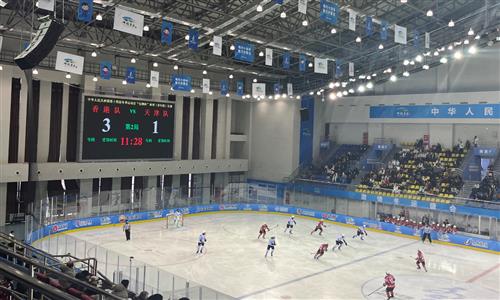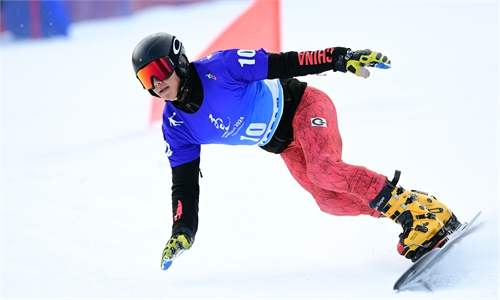ARTS / CULTURE & LEISURE
Harbin gears up for guests from across Asia, 100 days to go
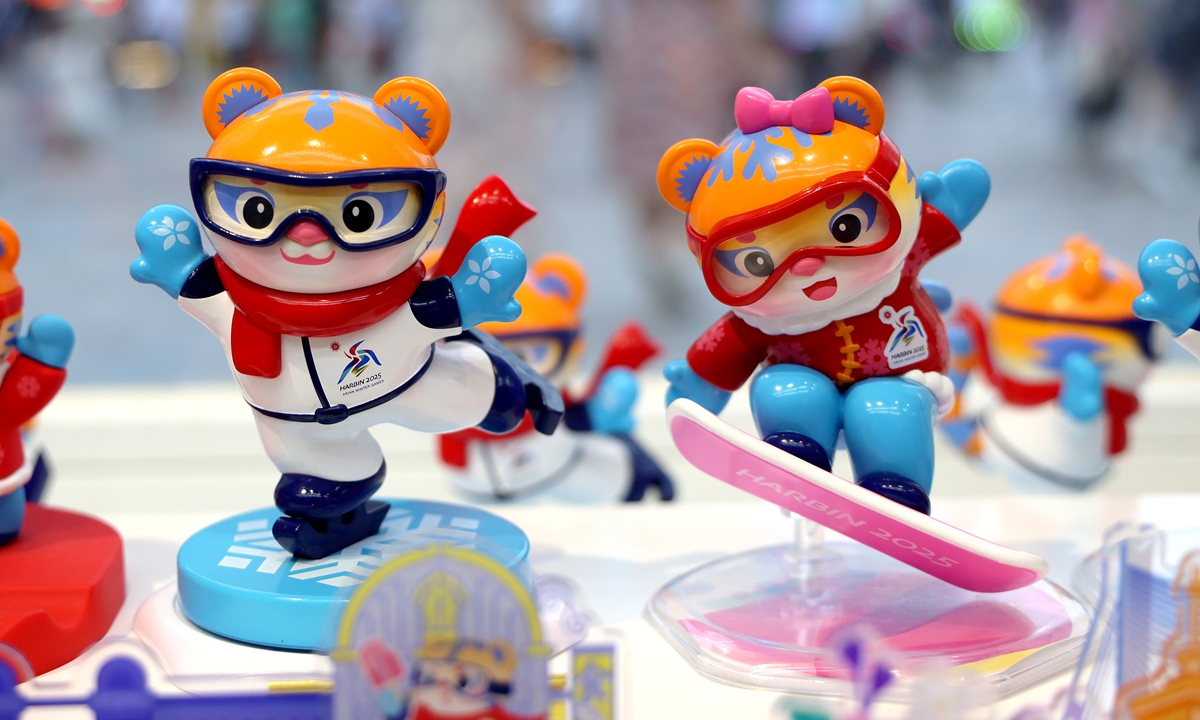
Mascots of the 2025 Asian Winter Games Photo: VCG
China, Japan, and South Korea have applied for all competition categories at the 2025 Asian Winter Games, and Cambodia and Saudi Arabia are set to make their Games debut, organizers announced ahead of the 100-day countdown to the Harbin Games during a press conference on Tuesday.
Harbin, the capital of Northeast China's Heilongjiang Province, is set to host the 9th Asian Winter Games from February 7 to 14 in 2025, marking the city's second time hosting the event since the 1996 edition.
The 2025 Asian Winter Games have attracted 34 countries and regions, surpassing previous records in both the number of participants and diversity.
Saudi Arabia, the host country of the 2029 Asian Winter Games, is set to make its debut in Harbin, participating in alpine skiing, speed skating, and ice curling.
China's enthusiasm for winter sports has grown exponentially following the Beijing 2022 Winter Olympics, with "300 million people on ice and snow" becoming a reality, transforming winter sports into a mainstream pursuit across the country.
Over 170 Chinese athletes are expected to compete across 64 events, according to Zhou Jinqiang, vice chief of China's sports governing body the General Administration of Sport.
The surge in participation in events like alpine skiing, with 25 countries registered, demonstrates a rising enthusiasm for winter sports across Asia.
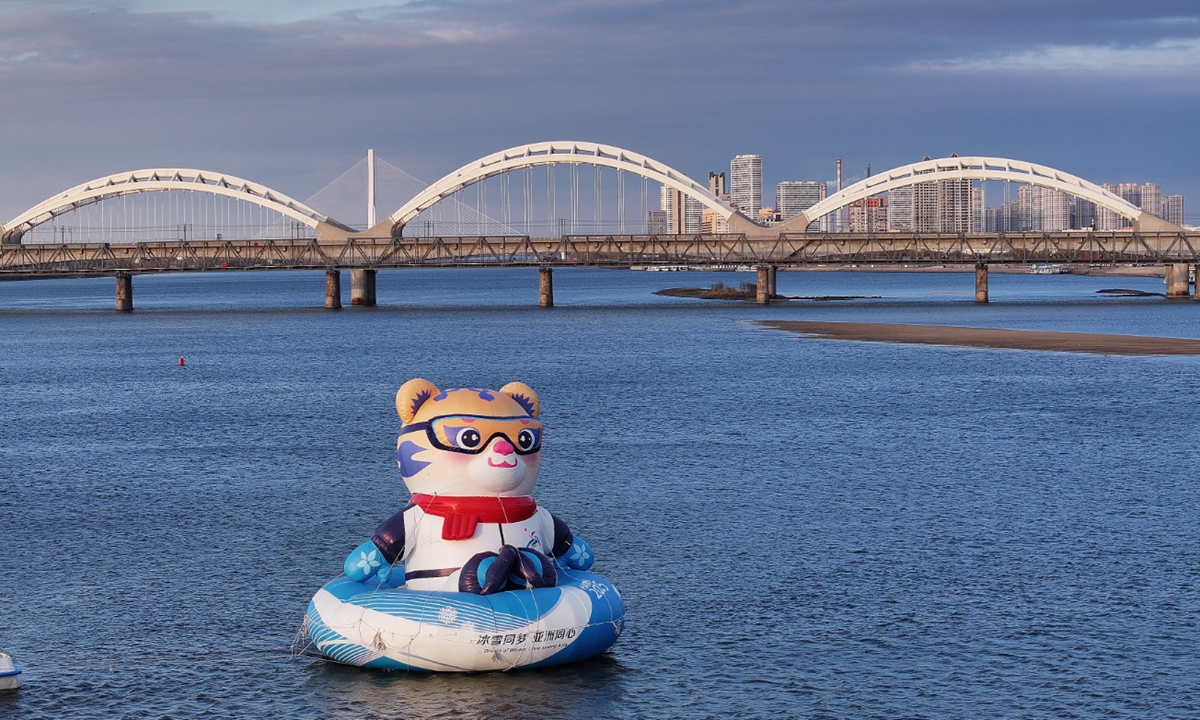
Binbin, the mascot of the 9th Asian Winter Games Photo: VCG
New disciplinesThe Harbin Games also serves as a critical stepping stone for Asia's top winter athletes preparing for the Milan 2026 Winter Olympics.
"The Harbin Games is not just a competition, but an important trial run for our winter Olympic athletes. We aim for a dual victory in both athletic achievement and sportsmanship," Zhou said.
With the expansion of events, the 2025 Games will include several new disciplines, including those in speed skating, short-track skating, and ski mountaineering.
Notably, ski mountaineering will feature in the Milan 2026 Winter Olympics, positioning the Asian Winter Games as a testing ground for athletes vying for Olympic medals in this new discipline.
The Games will see five Harbin venues dedicated to ice events, while eight venues in Yabuli will accommodate snow-based competitions.
By September 2024, all venues had passed inspections and are now undergoing testing events until January, to ensure that they meet international standards.
To maintain a cost-effective and eco-friendly approach in hosting the Games, Harbin has focused on reusing and upgrading existing facilities rather than building new ones.
All the 13 venues were renovated incorporating sustainable materials and low-carbon technologies to minimize environmental impact.
Han Shengjian, vice governor of Heilongjiang and vice chairman of the Harbin 2025 organizers, noted at the press conference that the renovations are not only economical but also represent a sustainable legacy for the community.
"We aim to create a lasting impact with facilities that will continue to serve athletes, the public, and tourism well beyond the Games," Han said.
The torch relay of the Harbin Asian Winter Games will kick off in January, with a streamlined route and fewer torchbearers to reduce disruptions, organizers said.
The scenic Songhua River will serve as the backdrop for key segments of the relay, allowing the event to showcase Harbin's cultural and natural beauty while minimizing impact on the local community.
For the opening and closing ceremonies, the duration and scale of performances have been optimized. "Our goal is to be thoughtful without extravagance, keeping things simple yet impactful; frugal yet magnificent," said Wang Hesheng, mayor of Harbin.
Heilongjiang, a traditional winter sports powerhouse in China, prioritizes winter sport development at the grass-roots level.
The province has engaged millions of youth in winter sports over the years, generating a robust pipeline of young talent, Han said.
One of the prominent examples is Qitaihe, a city that boasts several world champions, including China's first Winter Olympic gold medalist Yang Yang and four-time gold medalist Wang Meng.
"We are working to summarize and promote the 'Qitaihe model' and to develop policies that deepen the integration of sports and education," Han said.
"This includes setting up pilot sites across the province to build a scientific system for identifying, selecting, and recommending talents, expanding the reserve talent pool."
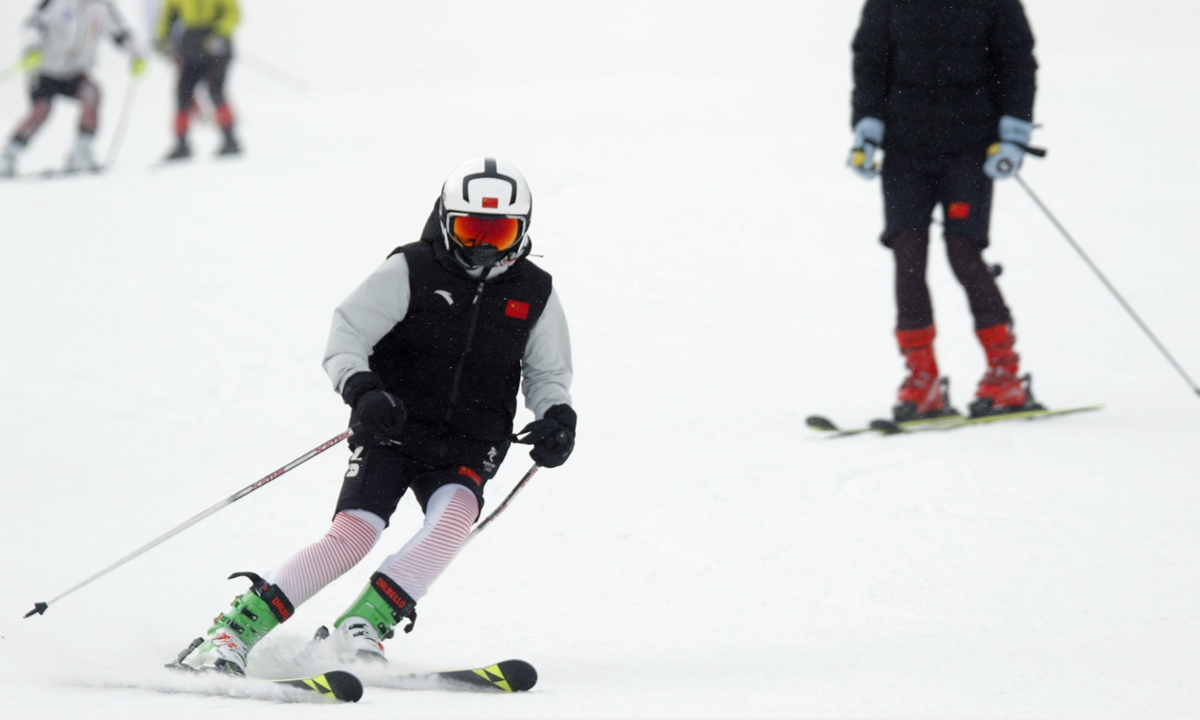
A tourist skis in Harbin, Northeast China's Heilongjiang Province. Photo: VCG
Easier accessWang also noted that the government has expanded public access to winter sports facilities, introducing cross-country ski tracks on the Songhua River and developing 3,000 community-accessible ice and snow facilities.
Harbin plans to host several cultural events to welcome participants and showcase the unique heritage of Heilongjiang, deepen intercultural exchanges between athletes, and promote mutual understanding across the continent, Wang added.
These will include immersive experiences in the province's intangible cultural heritage, acrobatic ice performances, opera parades, and a traditional Lantern Festival celebration.
A diverse range of public winter sports events, including ice marathons and city skiing, with more than 300 public ice and snow competitions will be held in the city, Wang said.
The iconic Ice and Snow World will expand from 810,000 square meters last season to 1 million square meters, with the number of popular ice slides increasing from 16 to 24.
In the skiing sector, the Yabuli Ski Resort's three ski areas will interconnect with each other allowing skiing enthusiasts to enjoy access to all three mountains with a single pass, offering 56 interconnected slopes.

